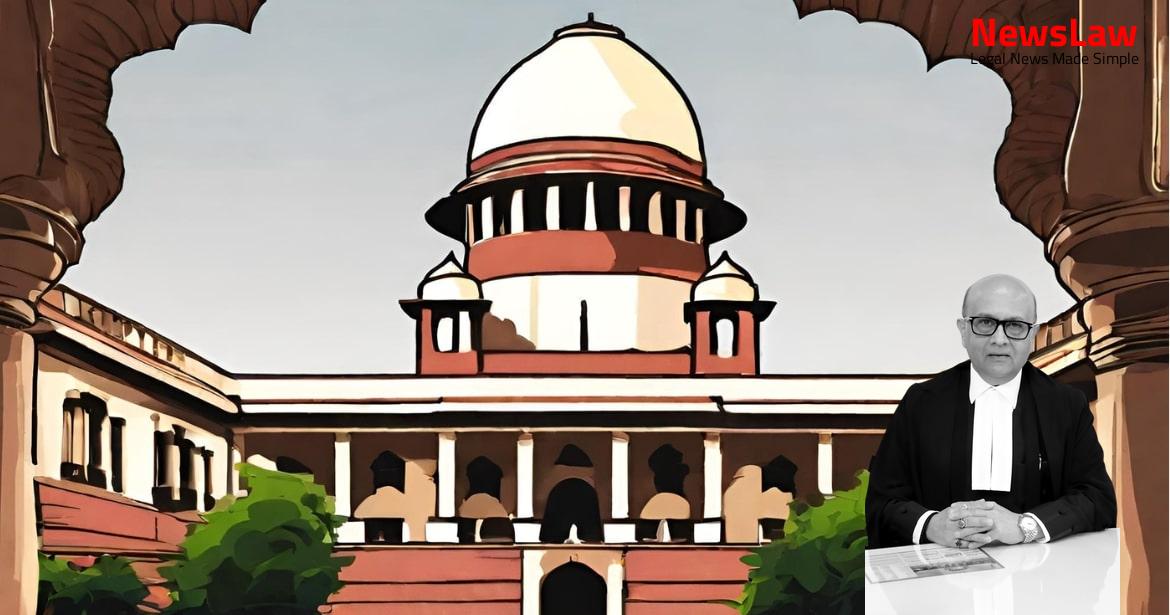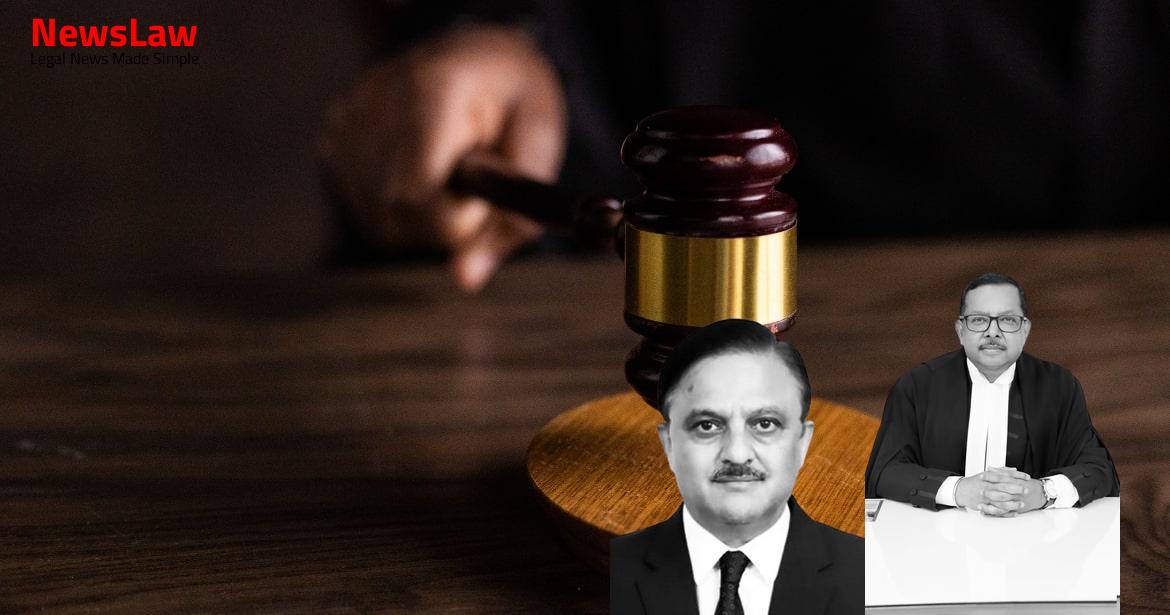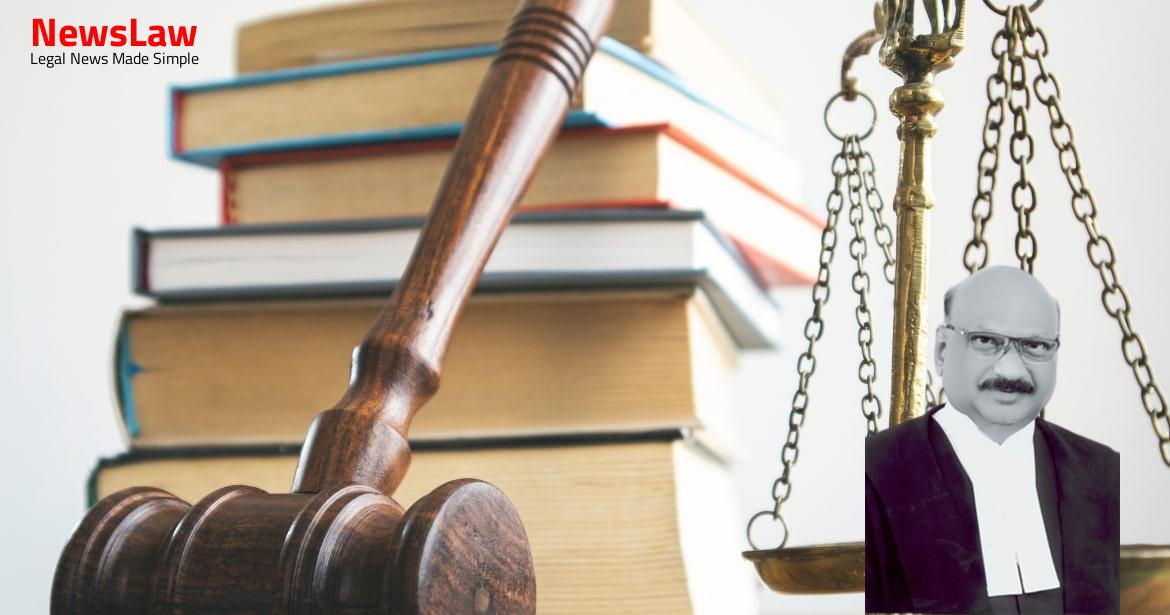In exercise of powers conferred by Sections 29 and 43, read with clauses (n) and (w) of Sub-section (2) of Section 101 of the Consumer Protection Act, 2019 (hereinafter referred to as the Act, 2019), the Ministry of Consumer Affairs, Food and Public Distribution (Department of Consumer Affairs) framed the Rules, 2020. Rule 4(2)(c)
provided that a person shall not be qualified for appointment as a member of the District Commission unless he is a person of ability, integrity and standing, and having special knowledge and professional experience of not less than fifteen years in consumer affairs, law, public affairs….. 4 Rule 3(2)(b), Rule 4(2)(c) and Rule 6(9) were the subject matter of challenge before the High Court being unconstitutional, arbitrary and violative of Article 14 of the Constitution of India. Procedure of appointment.—(1) The President and members of the State Commission and the District Commission shall be appointed by the State Government on the recommendation of a Selection Committee, consisting of the following persons, namely:— ( a ) Chief Justice of the High Court or any Judge of the High Court nominated by him- Chairperson; ( b ) Secretary in charge of Consumer Affairs of the State Government Member; ( c ) Nominee of the Chief Secretary of the State—Member. (6) The advertisement of a vacancy inviting applications for the posts from eligible candidates shall be published in leading newspapers and circulated in such other manner as the State Government may deem appropriate. (10) The Selection committee shall recommend a panel of names of candidates for appointment in the order of merit for the consideration of the State Government. (13) Before appointment, the selected candidate shall furnish an undertaking that he does not and will not have any such financial or other interest as is likely to affect prejudicially his functions as a President or member.” 5 The validity of the aforesaid rules, namely, Rules 3 (2)(b), 4(2)(c) and 6(9) were challenged before the High Court by the original writ petitioner on the following grounds: – (a) Uncontrolled discretion and excessive power to the selection committee to determine its procedure to recommend candidates to be appointed is arbitrary, unreasonable and in violation of Article 14 of the Constitution of India.
(e) The Draft model rules approved by this Hon’ble Court and accepted by all the parties are not adhered with. It was also the case on behalf of the original writ petitioners that by adopting the model rules, many states notified the Consumer Protection (Appointment, Salary, Allowance and Conditions of Service of President and Members of State Commission and District Forum) Rules, 2017 (hereinafter referred to as the Rules, 2017) on 18.05.2018. It was also argued on behalf of the original writ petitioners that prescribing minimum experience of 20 years and 15 years for President and Members of State and District Commission respectively, is contrary to the directions issued by this Court in the case of Madras Bar Association Vs.
Therefore, the High Court has opined and observed that the standards expected from the judicial members of the tribunals and standards applied for appointing such members, should be as nearly as possible as applicable to the appointment of judges exercising such powers. It is held and declared that Rule 3(2)(b), Rule 4(2) (c) and Rule 6(9) of the Rules of 2020, are arbitrary, unreasonable and violative of Article 14 of the Constitution of India for the reasons recorded herein above and hence are quashed and set aside; iv. Fresh process of selection of members of the State Commission, President and the members of the District Commission be initiated in accordance with the amended Rules and completed at the earliest as directed by the Hon’ble Supreme Court of India; viii.
It is submitted that based on the discussion in the said meeting, it was observed that a written examination for appointments of members of tribunals as a uniform policy would be feasible neither nor desirable, due to, inter alia, the following reasons: (i)
The number of vacancies to tribunals per year is very low, and in some tribunals only in single digits. (iii) Competent, eminent, and successful persons aged over thirty five or forty or even fifty may not be willing to write a written examination and then have their marks published openly, which would dissuade a large number of people who may be desirable from applying. (vi) Prescribing a uniform requirement of a written examination across states would fail to take into account the local requirements of each state – for instance, the number of applications received in the smaller states such as Assam or Goa or Sikkim are very low, and sometimes even lesser than the number of posts advertised.
This would lead to the tribunals losing out on desirable persons, who may otherwise wish to join these tribunals in the spirit of public service. The selection of a candidate for appointment as the President or member in the State Commission or the District Commission may be based on the marks secured by him, out of a total of 100 marks. Number of years of experience 15 (i)
Also Read: https://newslaw.in/case-type/civil/acquisition-of-land-and-deemed-lapse-under-the-act-2013/
For the minimum number of years of experience required in terms of the rules governing the recruitment conditions – 10 marks (ii) For additional experience of every 2 years – 1 mark (maximum 5 marks). It is submitted that under Rule 6(9), the selection committee is empowered with uncontrolled discretionary powers to determine its procedure in the appointment of the President and Members of the State and District Commission. 2
In support of their submissions that Rule 3(2)(b) and Rule 4(2)(c) and Rule 6(9) of Rules, 2020 are arbitrary, unreasonable, and violative of Article 14 of the Constitution of India, it is submitted as under: – (a)That the selection method under Rules, 2020 confers uncontrolled discretion and excessive power to the selection committee to determine its procedure to recommend candidates to be appointed is arbitrary, unreasonable and in violation of Article 14 of the Constitution of India; (b)In the absence of the appointment of competent candidates, the object of the Consumer Protection Act is likely to be frustrated; (d) The president and members of the State and District Commission are empowered with the powers of the Court. 3 It is further submitted that even the Law Commission in its 272 Report suggested that the members of the newly constituted tribunals should possess the qualifications akin to the judges of the High Court and District Court.
It is further submitted that even prior thereto, model rules 2012 were already in existence in the State of Maharashtra under Section 30 of the Consumer Protection Act, 1986 and the said rules already had the provision of written examination of 100 marks for aspiring candidates/applicants for the post of President and Members of District Consumer Forum under Rule 10.
There is no change in the judicial functions of President and Members of the State and District Commission even post-Consumer Protection Act, 2019 (Act, 2019) which have come into force with effect from 20.07.2020. 6 It is submitted that under Section 71 of the Act, 2019, the Commissions are empowered with the powers of the civil court and under Section 72, the Commissions are empowered with the powers of JMFC. It is submitted this Court in the case of Madras Bar Association (supra) declared that “Article 14 clearly includes a right to have the person’s rights adjudicated by a forum which exercises judicial powers in an impartial and independent manner, consistent with the recognized principles of adjudication.” It is submitted that in the present case under Rule 6(9) the Central Government has granted complete discretion to determine the selection procedure without laying down criteria and standards and the same is unreasonable and arbitrary. The selection committee may consider the suitability of the retired or serving judicial candidates based on available record, however, the suitability of the candidates coming from non-judicial sources, cannot be determined without testing the overall competency. 502/2021 decided on 14.07.2021 that the permissibility of legislative override in this country should be in accordance with the principles laid down by this Court in the catena of decision which are as under: – “44. Even interim directions cannot be reversed by a legislative veto
Also Read: https://newslaw.in/case-type/civil/taxation-of-engineering-design-drawings-goods-or-services/
[See : Cauvery Water Disputes Tribunal (supra) and Medical Council of India v.
Even in according to the provisions of Rule 4(1) a person who is eligible to be appointed as a District Judge (having minimum experience of seven years as per Article 233 of Constitution of India) is qualified to be appointed as President of District Commission. However, in order to get appointment as a Member of State Commission the Rule 3(2)(b) mandates a minimum experience of 15 years, which is illegal and violative of Article 14, because the requirement of qualification and experience of a lawyer to get appointed as a High Court Judge is only ten years as per Article 217 of the Constitution of India. By the impugned judgment and order the High Court has declared Rule 3(2)(b) and Rule 4(2)(c) and Rule 6(9) of the Consumer Protection (Qualification for appointment, method of recruitment, procedure of appointment, term of office, resignation and removal of President and Members of State Commission and District Commission) Rules, 2020 as unconstitutional, arbitrary, and violative of Article 14 of the Constitution of India.
(2) A person shall not be qualified for appointment as member unless he— xxx ( c ) is a person of ability, integrity and standing, and having special knowledge and professional experience of not less than fifteen years in consumer affairs, law, public affairs, administration, economics, commerce, industry, finance, management, engineering, technology, public health or medicine. The issue with respect to the conditions of eligibility for appointment of non-judicial members was one of the issues before this Court in the case of UPCPBA (supra). Many of the non-judicial members attend to the place of work only to sign orders which have been drafted by the Presiding Officer. Three instances furnished in the Report of the Committee provided a telling example of the state of affairs: “( 15 ) The Committee could make out that there has been considerable bureaucratic and political influence/interference in the “selection process” and functioning of the consumer fora. ( 16 ) One non-Judicial Member who had her first term at Lucknow and has now been enjoying her second term, having been appointed for District Forum, Barabanki but has been attached to Greater Noida and as per the reports, comes to Forum once or twice a week.
The Union Government shall also frame within four months model rules prescribing objective norms for implementing the provisions of Section 10(1)( b ), Section 16(1)( b ) and Section 20(1)( b ) in regard to the appointment of members respectively of the District Fora, State Commissions and National Commission; 28.3. Upon the approval of the model rules by this Court, the State Governments shall proceed to adopt the model rules by framing appropriate rules in the exercise of the rule-making powers under Section 30 of the Consumer Protection Act, 1986; 28.5. 2740/2007 reported in (2018) 7 SCC 423, this Court considered the draft model rules which were framed by the Union of India.
Rules, 2017 which were adopted provided that in every cases, the selection of Members of the District Fora and State Commission shall be on the basis of a written test of two papers (Rules 5 and 7). After considering catena of decisions of this Court on permissibility of legislative override this Court observed and held in paragraphs 42 to 44 as under: – “42. A writ petition was filed in the High Court of Calcutta for a mandamus directing the Life Insurance Corporation (LIC) to act in accordance with the terms of settlement dated 24.01.1974 read with administrative instructions dated 29.03.1974.
Union of India (1982) 1 SCC 205, Justice Hansaria held that the legal stand taken by Justice Beg in the Madan Mohan Pathak case had received majority’s endorsement and it was because of this that retrospectivity given to the relevant rule assailed in A.V. Such a course is impermissible.” This Court in Cauvery Water Disputes Tribunal 1993 Supp (1) SCC 96 (2) declared the ordinance which sought to displace an interim order passed by the statutory tribunal as unconstitutional as it set side an individual decision inter partes and therefore, amounted to a legislative exercise of judicial power. Setting at naught a decision of the Court without removing the defect pointed out in the judgment would sound the death knell of the rule of law. Even interim directions cannot be reversed by a legislative veto [See : Cauvery Water Disputes Tribunal (supra) and Medical Council of India v.
4 Taking into consideration the aforesaid decisions, the High Court in the impugned judgment and order has rightly observed and held that Rule 3(2)(b), Rule 4(2)(c) and Rule 6(9) of the Rules, 2020 which are contrary to the decisions of this Court in the cases of UPCPBA (supra) and the Madras Bar Association (supra) are unconstitutional and arbitrary.
Case Title: THE SECRETARY MINISTRY OF CONSUMER AFFAIRS Vs. DR. MAHINDRA BHASKAR LIMAYE (2023 INSC 209)
Case Number: C.A. No.-000831-000831 / 2023



